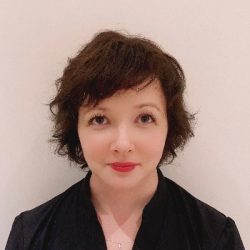Visit and Seminar by Prof. Marina Freitag!
Seminar: Next Generation Zombie Solar Cells
October 8th 2021, COB2 room at 2pm
By 2025 about 75 billion IoT devices will be installed and the majority will reside indoors. It is crucial to find an energy source that yields high efficiencies in this environment.1,2 The newly developed DSCs operate at 34% efficiency under ambient light, while being more sustainable.
Fast charge separation in a variety of organic dyes and tunable energy levels in Cu(II/I) redox systems combined with negligible recombination processes allow DSCs to maintain a high photovoltage under ambient light. The co-sensitization of absorbers enables absorption over a broad spectral range and the adaption to the vast majority of light sources. As a result, DSCs outperform other photovoltaics under ambient lightning. We studied DSCs with Cu(II/I)(tmby)2 electrolyte based on a combination of dyes XY1 and L1. The new dye sensitized “solar” cells achieve an unprecedented power output of 103.1 μW cm-2 at 1000 lux.2 Being able to harvest energy at low light intensities will enable a broad variety of new IoT devices. A major step forward was demonstrated as even machine learning and advanced image recognition is possible on these devices with the given energy for both learning and prediction. This is essentially the direct transformation of high entropy diffuse light into structured information.
1 Freitag, M.; Teuscher, J.; Saygili, Y.; Zhang, X.; Giordano, F.; Liska, P.; Hua, J.; Zakeeruddin, S. M.; Moser, J.-E.; Grätzel, M.; Hagfeldt, A. Nat. Photonics 2017, 11 (6), 372.
2 Michaels, H.; Rinderle, M.; Freitag, R.; Benesperi, I.; Edvinsson, T.; Socher, R.; Gagliardi, A.; Freitag,M. Chem. Sci. 2020, 11, 2895–2906.
Bio: Dr Freitag is based at Newcastle University. Dr Freitag is dedicated to developing new light-driven technologies that will secure a safe, prosperous and healthy future worldwide. Her research has led her to recognise the potential of coordination polymers and complexes to address the key challenges facing her in her research area, such as the concerns about hybrid solar cell sustainability, stability and performance and has now used these new light harvesters to create so called “smart zombies”. She formally worked as an Assistant Professor at the Department of Chemistry at Uppsala University and as a postdoctoral researcher at EPFL. She earned her PhD with Professor Galoppini at Rutgers University, New Jersey, and her BSc in Chemistry at Freie Universitat Berlin, Germany.


